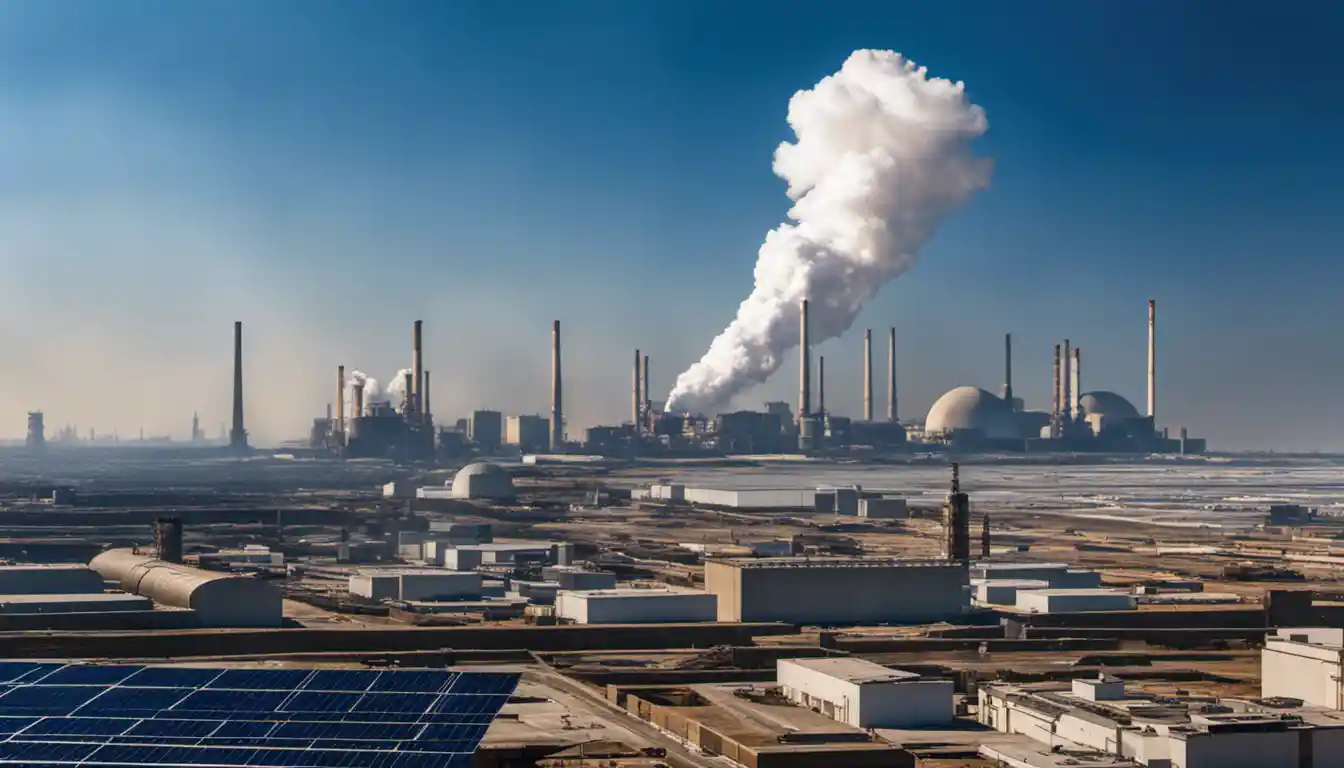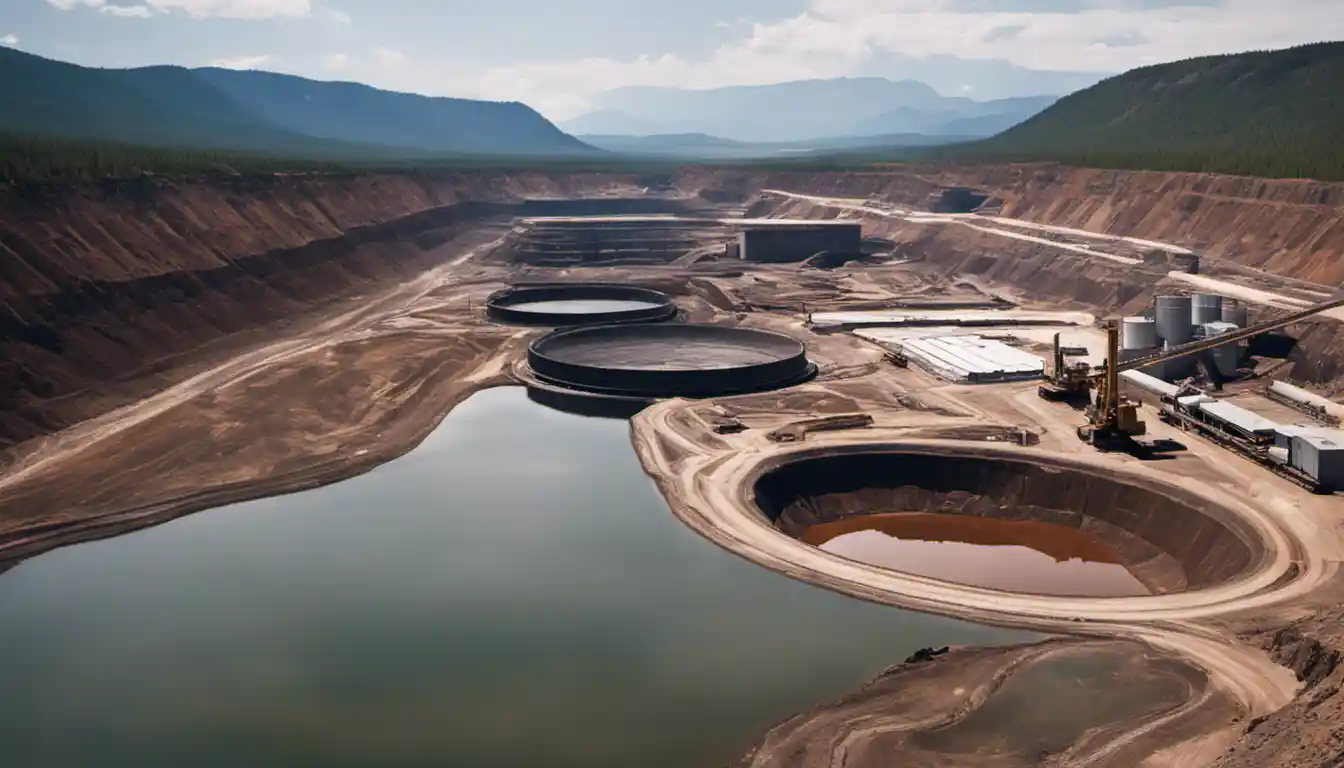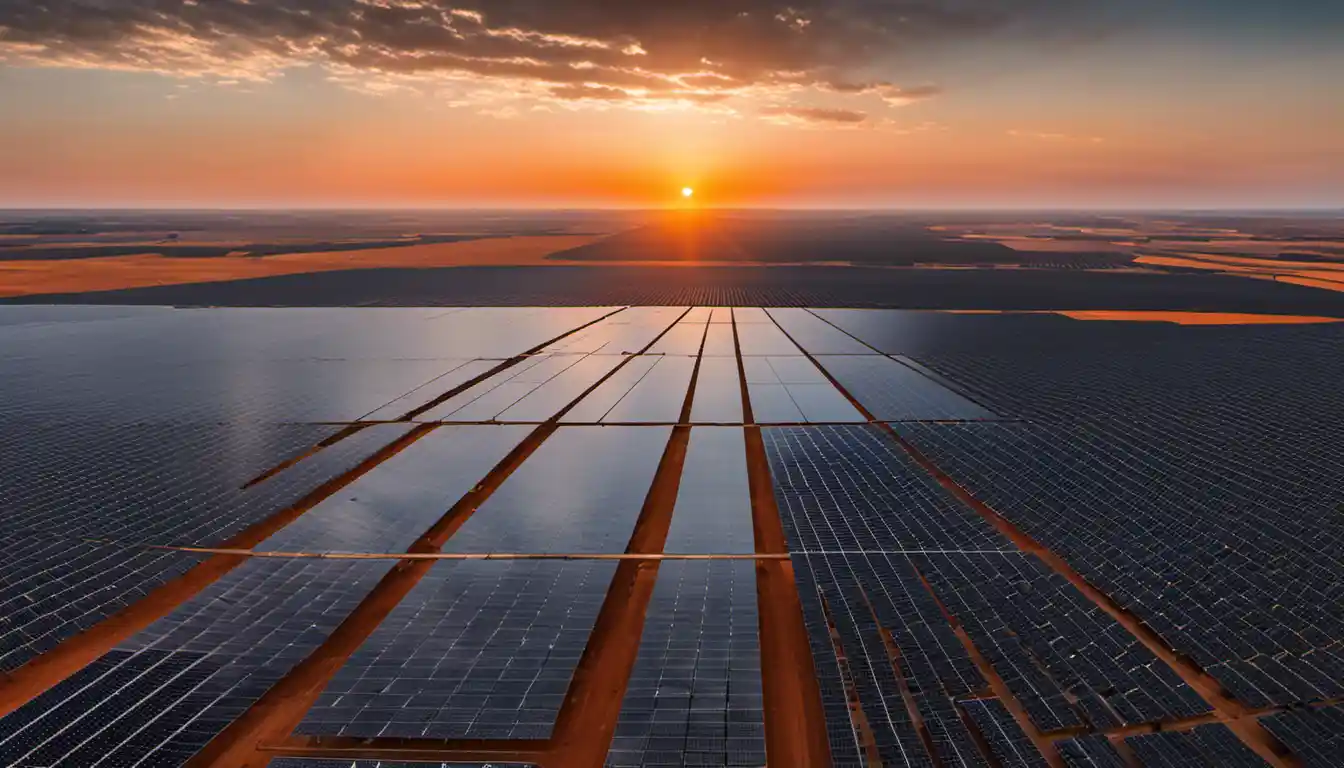Understanding Nuclear and Solar Energy
Nuclear and solar energy both have their pros and cons, which can vary depending on the specific situation and need. Nuclear energy is more efficient and reliable as it can produce power continuously, whereas solar energy is dependent on weather conditions. But, solar energy is a renewable source, doesn’t produce harmful wastes, and can be harnessed domestically which makes it more environmentally friendly and sustainable compared to nuclear power.
Definition of Nuclear Energy
Nuclear energy is a form of energy released during nuclear fission or fusion, particularly when atoms are split. This happens inside a nuclear power plant where uranium atoms are split inside a reactor to produce heat, which then produces steam that powers a turbine to generate electricity.
Definition of Solar Energy
Solar energy, on the other hand, is energy sourced from the sun’s rays. Solar panels comprised of photovoltaic cells take in sunlight and convert it into electricity. It’s entirely clean, 100% renewable, and is available every day globally – just think of all that potential!
Is Nuclear Power a Renewable Energy?
A common mistake is the assumption that because nuclear energy is often discussed alongside other low-carbon energy sources, it must be renewable. However, it is important to note that this isn’t technically true.
Comparing Nuclear Energy and Traditional Renewable Energies
While renewable energies (like solar, wind, and hydropower) are driven by natural processes and replenished at a faster rate than they are consumed, nuclear energy relies on uranium – a finite resource found in the earth.
Why Nuclear Power is Considered a Stock Energy
Stock energies, like fossil and nuclear fuels, are stored in huge amounts but are depleted as they are used. Though there’s enough uranium to last, by some estimates, for the next 230 years or so, the fact remains that it is finite, and for this reason, nuclear power is not classified as renewable.
Low-Carbon Emission: An Advantage of Nuclear Power
However, nuclear power boasts a specific advantage – low carbon emissions. It’s a prominent part of the energy mix of many developed countries thanks to its ability to generate large amounts of electricity without contributing directly to climate change.
Nuclear and Solar Energy: A Reliability Face-Off

When comparing nuclear power vs solar power, it’s important to take reliability into account.
The High Capacity Factor of Nuclear Energy
Among its primary strengths, nuclear power has a high capacity factor. This means it can produce electricity nearly round the clock, only stepping down for maintenance or repairs. This gives nuclear an edge, especially in regions with high energy demand.
Why Nuclear Power Plants Are More Dependable
Meanwhile, solar energy is intermittent, depending entirely on sunlight availability. Thus, during cloudy or rainy days, and during the night, solar panels are largely ineffective. To battle this, solar-powered systems often come with battery storage, but this drives up costs and requires additional installation space.
Comparing The Environmental Impact Of Nuclear and Solar Energy
Beyond the question of “Is nuclear energy better than solar?” lies another significant debate: “Which is more environmentally-friendly?”
Carbon Emissions: Nuclear Vs. Solar
Both nuclear and solar energy produce far fewer carbon emissions than fossil fuel-based plants over their lifecycle. However, the edge goes to solar. Why is solar energy better than nuclear energy in this regard? Mainly because solar energy, unlike nuclear, doesn’t produce any threatening waste that could pose potential hazards.
Land Use: Solar and Wind vs. Nuclear Energy
On the land use front, nuclear power plants require less land compared to solar farms. However, the lands around nuclear plants often need to be isolated due to safety concerns, while solar installations can coexist with other land uses, including residential and commercial applications.
Evaluating Material Requirements for Each Energy Source
In the debate of nuclear power vs solar power, we cannot escape a look into the material demands of both.
Material Input for Nuclear Energy Production

Uranium, necessary for nuclear energy, requires mining, refinement, and transportation – all of which carry environmental consequences. Also, the storage and management of radioactive waste is another concern that demands long-term planning and resources.
Material Input for Solar Energy Production
For solar energy production, the extraction and use of silicon, silver, and occasional rare metals are required. While this does raise some sustainability queries, continued advancements in solar technologies are promising to reduce the industry’s footprint over time.
Addressing Misconceptions: Is Nuclear Energy Dangerous?
Nuclear energy often summons images of cataclysmic meltdowns, toxic waste, and radiation-induced health effects. While these risks can’t be entirely discounted, it’s key to understand what’s being done to mitigate them.
Common Fears About Nuclear Energy
The sensationalism around nuclear accidents has contributed to fears around nuclear energy. However, with modern reactor designs, operational standards, and regulatory scrutiny, catastrophic events are extremely unlikely.
Safety Measures in Place for Nuclear Energy Generation
Moreover, the nuclear industry has stringent safety protocols. Nuclear power plants are designed to regular severe conditions and unexpected incidents without releasing radioactive materials. Decommissioned plants and waste management systems are meticulously monitored and maintained.
Nuclear Energy and Solar Energy Use in Different Countries
Around the world, countries are leveraging both solar and nuclear energy in their electricity mix.
Countries Effectively Using Nuclear Energy
France relies heavily on nuclear energy, accounting for 70% of its electricity production. China is actively building more nuclear reactors to meet its expanding energy needs while battling air pollution.
Countries Effectively Using Solar Energy

On the solar front, Germany leads the foray, setting new standards in the adoption of solar energy. China and the United States are not far behind, with massive solar installations cropping up regularly.
Nuclear Vs. Solar: A Comparative Summary
That leads us back to the ever-persisting question, “Is nuclear energy better than solar?”
Five Reasons Why Nuclear Could Be Better
- Nuclear energy is highly dependable, making it excellent for energy-intensive industries and high-demand periods.
- It has a higher energy density.
- Nuclear power plants require less land than solar farms.
- It offers a low-carbon energy option for nations without abundant renewable resources.
- Nuclear energy can continually produce electricity without dependency on weather conditions.
Five Reasons Why Solar Could Be Better
- Solar energy is 100% renewable, its source, the sun, will be around for another billion years or so.
- The production of solar energy doesn’t involve harmful waste or risk nuclear catastrophe.
- Decentralization of solar power promotes energy independence and resilience.
- Solar energy installations can coexist with other land use, like farming and housing.
- Technological advancements continue to bring down costs, putting solar increasingly within reach.
Conclusions: Nuclear Energy Versus Solar Energy
Nuclear energy and solar energy each have a set of advantages and challenges which makes it tough to definitively declare one as superior.
The Case for Nuclear Energy
Nuclear energy, with its high energy density and non-reliance on weather conditions, can more effectively meet consistent, high power demands. But the hazards of nuclear waste and the fear of accidents must be managed responsibly.
The Case for Solar Energy
On the other side, solar energy, by virtue of being green, renewable and increasingly cost-efficient, holds the promise for a sustainable future. Yet, it is hindered by intermittent production and location-specific effectiveness.
The Ideal Energy Mix: Nuclear + Solar?
Could the synergy of nuclear and solar be the answer we’re looking for? Merging the reliability of nuclear energy with the renewability of solar power could create a balanced and sustainable alternative.
While you ponder that, remember, adopting solar energy doesn’t necessarily mean installing panels on your roof. There are many other ways to use solar energy at home that can be explored.
Ultimately, the decision between nuclear and solar will depend on a variety of factors such as location, energy needs, environmental considerations, and economic scenarios. After all, the best power system is arguably the one that harmoniously combines various energy sources while preserving our planet.



